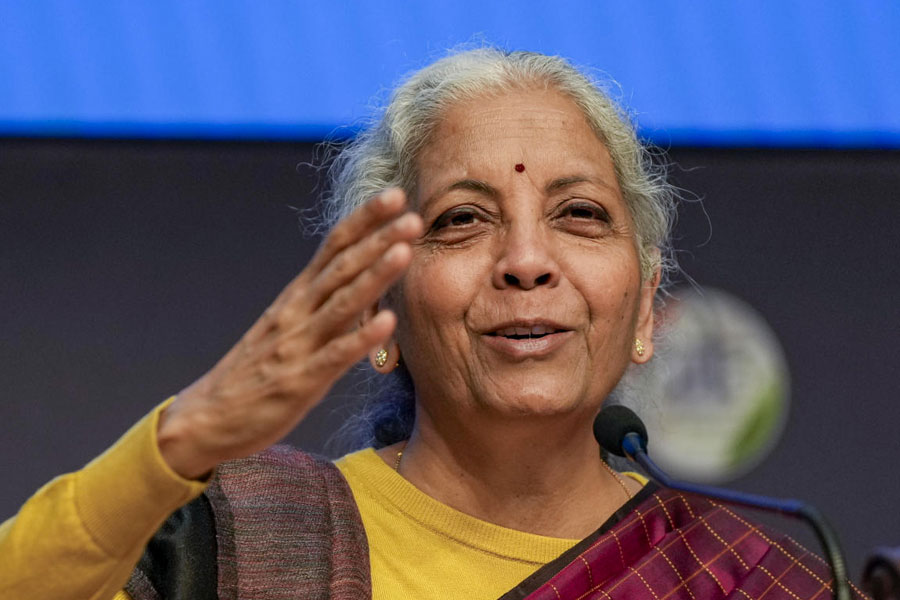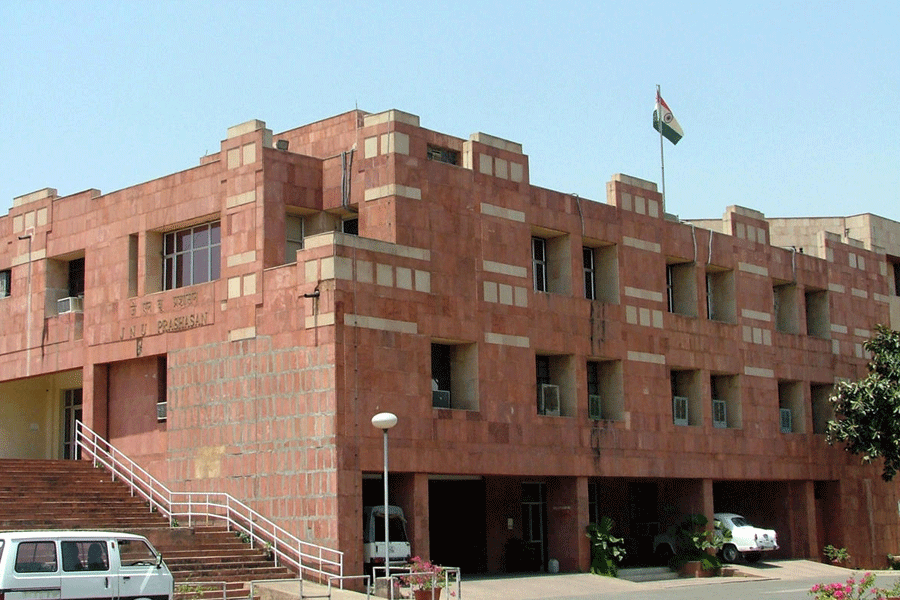The Centre on Tuesday announced reservation and domicile rules for Ladakh, reserving 85 per cent jobs for locals and setting a criterion of 15 years of uninterrupted stay in the Union Territory for domicile status.
Reservation for the Economically Weaker Sections (EWS) continues to be
10 per cent.
The announcement, made after years of consultations with the Ladakhi leadership, was widely hailed by residents of the Union Territory.
The domicile and reservation rules are part of the multiple notifications issued by the Centre to safeguard the culture and language of Ladakh and the powers of the autonomous hill development councils.
Under the new rules notified by the home ministry, those who have resided for 15 years at a stretch in Ladakh or studied for seven years and appeared in Class X or XII exams in an educational institution located in the Union Territory will acquire domicile status. Children of central government employees who have served in Ladakh for at least 10 years will also be eligible for the status.
Domicile certificates will be valid only for appointment to the posts under the Union Territory of Ladakh as defined in the Ladakh Civil Services Decentralisation and Recruitment (Amendment) Regulation, 2025.
The biggest relief for Ladakhis came on the reservation front.
According to the Union Territory of Ladakh Reservation (Amendment) Regulation 2025, 85 per cent jobs will be reserved for locals, excluding the 10 per cent EWS quota.
“...The total percentage of reservation shall in no case exceed 85 per cent, excluding reservation for Economically Weaker Sections,” the notification stated.
Leh Apex Body co-chairman Chering Dorjay, who played a key role in negotiations with the Centre, said 95 per cent of jobs in Ladakh were now reserved for local domiciles.
“Even if outsiders become domiciled by staying here for 15 years, they can only compete for 5 per cent of jobs. Ninety-five per cent of jobs are for the original residents,” Dorjay told The Telegraph.
“Eighty per cent of jobs are reserved for STs, 4 per cent for those living on the LoC or the LAC and 1 per cent for SCs. The 10 per cent EWS reservation is also only for locals. These are closed reservations, which means STs, SCs or people in the EWS category from other regions of the country cannot compete for them. We do not have any SCs here, but SCs from other areas cannot compete for these posts. Simply said, outsiders can compete for only 5 per cent of the posts,” he explained.
Dorjay said they had favoured a 30-year stay for non-locals to be eligible for domicile status, but the Centre did not agree.
Another Leh leader, however, said there was a lack of clarity on whether SC/STs from outside Ladakh would be eligible for reservation in the Union Territory even if they became domiciled.
Kargil leader Sajjad Kargili said 2019 was the cut-off year for domicile status, which means outsiders cannot become eligible for domicile certificates before 2034.
He said there was no specific cut-off year for domicile eligibility in Jammu and Kashmir.
The regulations do not address another key Ladakh demand of restricting land ownership to locals. Kargili said land ownership issues were being discussed separately with the Centre.
The new rules have designated tehsildars as the competent authority to issue domicile certificates and deputy commissioners as the appellate authority.
Officials said a high-powered committee comprising representatives from both Leh and Kargil had reached a consensus to define a timeline for domicile certificates for Ladakh after a meeting with home minister Amit Shah last week.
Through the Ladakh Autonomous Hill Development Councils (Amendment) Regulation, 2025, the government announced that not less than one-third of the total number of seats in the councils would be reserved for women. Such seats may be allotted by rotation to different territorial constituencies, it added.
To address concerns about cultural erosion, the government has notified The Ladakh Official Languages Regulation, 2025, which recognises English, Hindi, Urdu, Bhoti and Purgi as official languages of the Union Territory.











